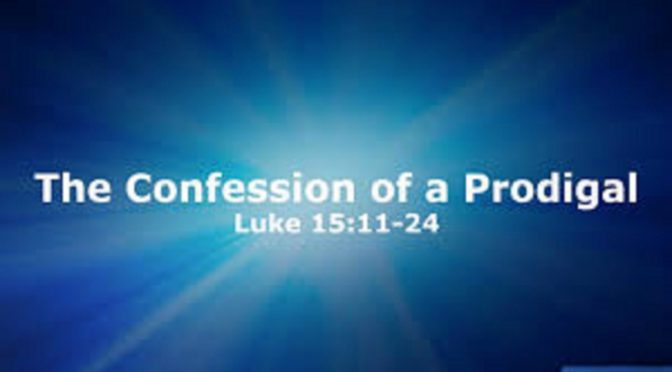Contents
Introduction
As the Lenten period comes to conclusion, the Gospel readings become more intense and more demanding. To end the lent without repentance is a serious spiritual offence. The fifteenth chapter of the Gospel according to Luke contains special episodes that dwell on repentance. Tax collectors, Sinners and the youth who squandered his own share of his father’s property are all examples of people who erred and desired to repent and come back to the right path. While Tax collectors and sinners.…
Practical repentance
The apostle Paul notes that godly sorrow produces an earnestness, an eagerness to clear one’s name, indignation, alarm, longing, concern and a readiness to see justice done (cf. 2Cor 7:11). While Paul records many separate instances of repentance, the single most prominent biblical source of images of repentance is Psalm 51, which provides an anatomy of the sinner’s (in this case, David’s) souls and emotions after the prophet Nathan confronted him with the enormity of what he had done in committing adultery with Bathsheba and murdering her husband (cf. 2Sam 11–12). Psalm 52 expresses a profound sense of both the depth of evil possible in the human heart and the confidence of one who has experienced the effects of authentic repentance. That is, forgiveness, and reconciliation with God. Again, the Psalm also underlines four facets of genuine repentance: comprehension/acknowledgement wrong done; earnest desire for justice; desire for the presence of God; and changed action.
Conclusion
The parable of the once lost son makes us think about the strange behaviour of the father. Ordinarily, we might think the father is foolish by granting the request of his son. We imagine our first response to the audacity of a son who asks for his inheritance his father is still alive. Indignation would certainly be a justifiable response to such a request. Yet the father in this parable agrees to honour the son’s request and divides his property among his two sons. This is God’s attitude towards us. Let us remember that this is a parable. And in this parable, the father is God while the two sons represent our attitude towards God and His grace.
FOR DETAILS, GET YOUR OWN COPIES OF THE BOOK “THE WORD OF LIFE: SUNDAY REFLECTIONS” (vols. I‑II-III)!! The reflection for the 4th Sunday of Lent © is found in vol. III pages 182–194. See also vol. I, pages 132–149. Happy reading!
For details on how to get it, contact the author on this link: https://m.me/uchennabiblia?fbclid=IwAR2yeg4a6sDGBp9QGkIvKj6FSADumMokN6lshdE0zuo-JHs6qOmlhA7jyHo or email me at: postmaster@uchennabiblia.com or simply send an SMS on 08116100926, and I will get back to you.

